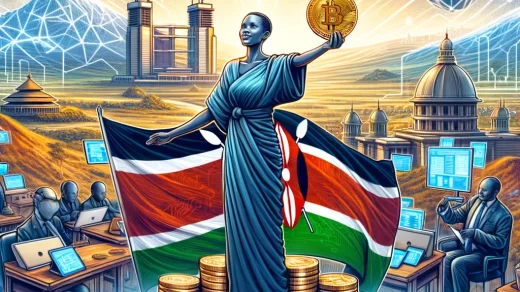In the vibrant landscape of virtual assets, one term that has gained significant prominence is “non-fungible token” or NFT. As per Botswana’s Virtual Assets Act 2022, NFTs hold a distinctive position, and understanding their definition is key to unraveling their unique characteristics.
Definition of “Non-Fungible Token (NFT)”:
A “non-fungible token” is defined as a unique virtual token created for specific applications. Let’s dissect the components of this definition:
- Uniqueness:
- The defining feature of an NFT lies in its uniqueness. Unlike fungible tokens, such as cryptocurrencies, NFTs are distinct and cannot be replicated or divided into smaller units. Each NFT is one-of-a-kind, contributing to its intrinsic value.
- Specific Applications:
- NFTs are designed for use in specific applications, indicating that their utility is often tied to particular digital or blockchain-based ecosystems. These applications can span a wide range, from digital art and collectibles to virtual real estate and gaming assets.
- Indivisibility:
- An NFT cannot be divided into smaller units. This indivisibility ensures that the unique properties and characteristics associated with each NFT remain intact, preserving their value and authenticity.
- Non-Interchangeability:
- NFTs are not interchangeable with other types of virtual tokens. Each NFT represents a distinct digital asset with its own set of attributes, and these cannot be swapped on a one-to-one basis with other tokens.
- Exclusion from Secondary Market:
- Unlike some fungible tokens that can be freely traded on secondary markets, NFTs are excluded from being sold in secondary markets. This restriction adds to the exclusivity of NFTs, as their ownership and transfer are often governed by specific rules and agreements.
Applications and Significance:
The applications of NFTs are diverse and continue to expand across various industries. Some notable applications include:
- Digital Art and Collectibles:
- NFTs have revolutionized the art world by providing a unique way to authenticate and trade digital art and collectibles.
- Gaming Assets:
- In the gaming industry, NFTs are used to represent rare in-game items, characters, and other virtual assets, allowing players to truly own and trade their digital possessions.
- Virtual Real Estate:
- NFTs are employed in virtual worlds to denote ownership of digital real estate, enabling users to buy, sell, and develop virtual properties.
Conclusion:
Non-fungible tokens are at the forefront of innovation in the virtual assets space. As Botswana’s regulatory landscape adapts to the evolving nature of digital assets, understanding the nuances of NFTs becomes crucial for participants in this dynamic ecosystem.




